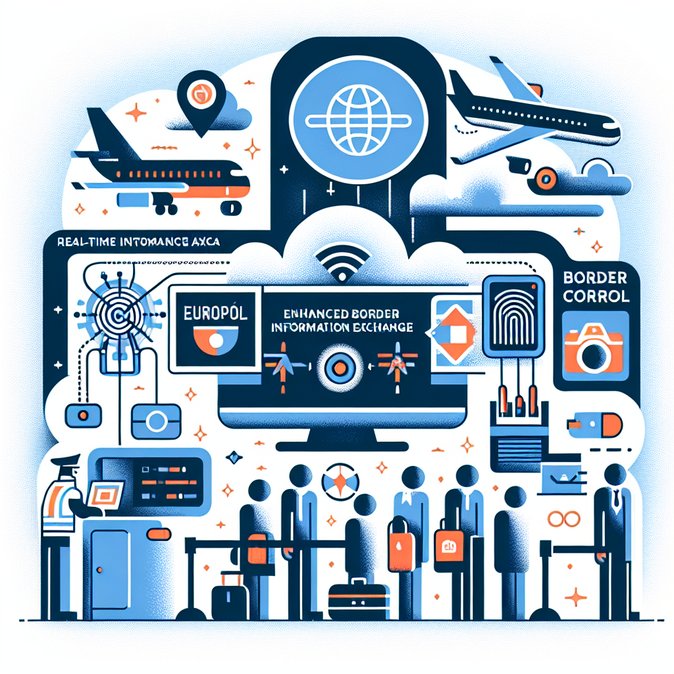
In Brussels on 29 October 2025, the Official Journal of the European Union published Agreement 2025/2167 establishing a formal cooperation framework between Europol and Brazil’s Federal Police. The treaty, signed earlier in the day by EU Home-Affairs Commissioner Magnus Brunner and Brazilian Justice Minister Ricardo Lewandowski, permits the two sides to exchange both personal and operational data on suspected criminals and terrorist networks, something that previously required cumbersome case-by-case arrangements.
Background & drivers – Brazil has been an informal but increasingly important partner for Europol since 2017, assisting European police with investigations into cocaine trafficking routes that start in Brazilian ports and with cyber-crime rings targeting EU companies. A sharp rise in trans-Atlantic travel—particularly ahead of November’s COP 30 summit in Belém—and a 36 % jump in Brazilian passport holders entering the Schengen Area this year have heightened pressure for closer law-enforcement cooperation. EU officials also point to the launch of the bloc’s new biometric Entry/Exit System (EES) on 12 October as a catalyst for faster data-exchange deals with key visa-exempt countries such as Brazil.
Key provisions – • Real-time sharing of fingerprints, facial images, travel-document numbers and telecom metadata for persons linked to organised crime or terrorism; • Creation of joint analysis teams focused on illicit migration routes between South America and the EU; • Strict data-protection safeguards modelled on EU GDPR rules, including independent oversight and the right of any individual to challenge erroneous entries. The pact will remain in force for five years and is automatically renewable unless one party objects.
Practical implications for global mobility – 1) Airlines and travel-management companies moving staff between Brazil and Europe should expect closer scrutiny of passenger manifests as new API/PNR filters go live; 2) Brazil-based multinationals with assignees in the EU may need to review internal compliance programmes to ensure employee data that could be shared with Europol is accurate and up-to-date; 3) Faster information flows should enable both Brazilian and EU border agencies to process low-risk travellers more quickly, potentially offsetting the longer queues caused by EES biometric capture during its early roll-out.
Analysis – The agreement is a clear signal that the EU wants trusted-partner status for Brazil ahead of the delayed ETIAS visa-waiver authorisation, now due in 2027. For Brazil, it strengthens its claim to be a reliable security ally as it negotiates wider mobility concessions for its citizens—such as the long-sought removal of short-stay visa requirements for Brazilians visiting Canada and Australia. Corporations should welcome the prospect of more predictable compliance checks, but must also be ready for tighter screening of supply-chain employees, sub-contractors and frequent travellers flagged in new joint watch-lists.
Background & drivers – Brazil has been an informal but increasingly important partner for Europol since 2017, assisting European police with investigations into cocaine trafficking routes that start in Brazilian ports and with cyber-crime rings targeting EU companies. A sharp rise in trans-Atlantic travel—particularly ahead of November’s COP 30 summit in Belém—and a 36 % jump in Brazilian passport holders entering the Schengen Area this year have heightened pressure for closer law-enforcement cooperation. EU officials also point to the launch of the bloc’s new biometric Entry/Exit System (EES) on 12 October as a catalyst for faster data-exchange deals with key visa-exempt countries such as Brazil.
Key provisions – • Real-time sharing of fingerprints, facial images, travel-document numbers and telecom metadata for persons linked to organised crime or terrorism; • Creation of joint analysis teams focused on illicit migration routes between South America and the EU; • Strict data-protection safeguards modelled on EU GDPR rules, including independent oversight and the right of any individual to challenge erroneous entries. The pact will remain in force for five years and is automatically renewable unless one party objects.
Practical implications for global mobility – 1) Airlines and travel-management companies moving staff between Brazil and Europe should expect closer scrutiny of passenger manifests as new API/PNR filters go live; 2) Brazil-based multinationals with assignees in the EU may need to review internal compliance programmes to ensure employee data that could be shared with Europol is accurate and up-to-date; 3) Faster information flows should enable both Brazilian and EU border agencies to process low-risk travellers more quickly, potentially offsetting the longer queues caused by EES biometric capture during its early roll-out.
Analysis – The agreement is a clear signal that the EU wants trusted-partner status for Brazil ahead of the delayed ETIAS visa-waiver authorisation, now due in 2027. For Brazil, it strengthens its claim to be a reliable security ally as it negotiates wider mobility concessions for its citizens—such as the long-sought removal of short-stay visa requirements for Brazilians visiting Canada and Australia. Corporations should welcome the prospect of more predictable compliance checks, but must also be ready for tighter screening of supply-chain employees, sub-contractors and frequent travellers flagged in new joint watch-lists.











